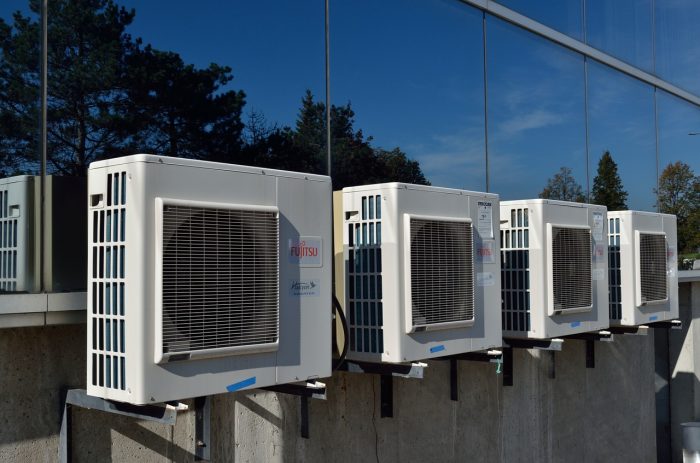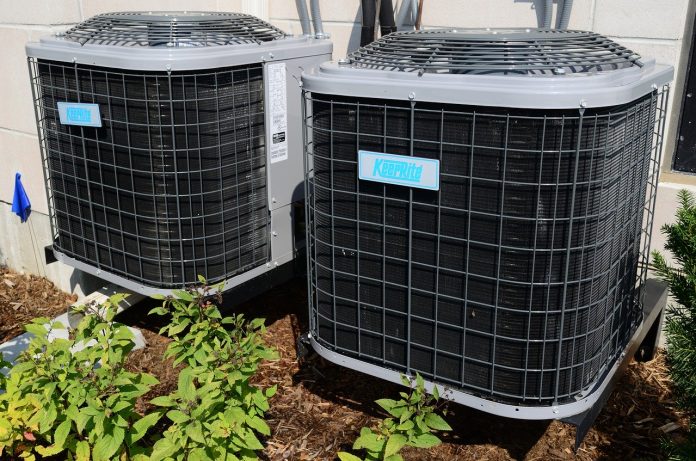Once considered a luxurious service for certain occasions, air conditioning is now an irreplaceable asset in our lives. The first modern air conditioner was designed by Willis Carrier in 1902 to reduce the humidity of a company’s interior because it was ruining their paper. His system was patented and he started experimenting with humidifying and dehumidifying to control temperatures. The HVAC industry has been evolving continuously ever since the integration of air conditioning into countless industries, and now half of the energy consumption in the U.S. goes directly into powering HVAC systems, whether it’s for cooling or heating. While commercial use was a great start, the introduction of HVAC into residential homes has helped many HVAC businesses leap in terms of production and profit.
The world doesn’t look like it will stop using air conditioning any time soon, so we’ll discuss the kind of profit that can be expected from HVAC businesses.
Expenses
Before a business owner pockets any money from their business, they have to make sure that all expenses have been cleared. Residential HVAC business owners have to factor in techs and other employees’ paychecks, marketing, equipment, and any other costs. The time it takes to build an HVAC business from the ground up can amount to a few years. Most successful businesses try to spend their initial time trying to find ways to reduce expenses while increasing their efficiency. Variable costs like utilities, marketing, and office expenditures can be cut down to a minimum during an HVAC’s first year.
Average income of owners
Owners of residential HVAC businesses average around 6% of the total profit that their business makes; the other 94% goes to expenses. Unfortunately, 6% is not enough for many people who thought that operating an HVAC business can provide them with financial freedom. The average annual income of HVAC business owners is between $35,000 and $75,000. The allure of HVAC businesses lies in their ability to generate huge profits if all cards are played right.
Environment and health
The HVAC industry has taken a lot of meaningful measures in combating the harmful emissions produced by air conditioners. A lot of businesses are offering new types of cooling refrigerants like Puron that have less impact on the ozone layer than freon. Allergies have been at the top of manufacturers’ priority as well since air conditioning has the potential to spread germs, pollen, and many harmful small particles. According to the listed solutions on https://filterbuy.com/resources/can-you-be-allergic-to-air-conditioning/, installing new filters can combat the harmful spread of allergens. HVAC businesses are becoming more aware of the risks that are associated with unregulated and old filters, increasing their reach to customers in the form of routine maintenance. Some businesses are even offering the installation of stronger filters in case of the presence of anyone with asthma or a sensitive respiratory system in the household.

Compartmentalization
HVAC businesses that bring in higher profits than the majority often use a pricing technique called compartmentalization. Big HVAC companies place many different payment schemes according to the services that they provide. Since HVAC is a pretty major field with a lot of different branches, treating major departments like compartments that are separate from each other is the best way to go. A lot of small HVAC businesses think that they don’t need to, avoiding putting a lot of work into accounting.
The overhead forecast of the different departments can help HVAC businesses formulate the best prices, especially when they have more than one competitor in a local area. Creating separate routes of profits/expenses for different departments can show business owners the critical joints that can be improved to increase profits and reduce losses.
Quick scheduling and dispatching
The necessity of having air conditioning can be imperative to the smooth workflow and operation of businesses. HVAC businesses that have a punctual timeline and a quick dispatching system are known to be the most successful amongst their peers. Problems and breakdowns in the HVAC system need to be fixed as soon as possible in the majority of cases. For HVAC businesses to expand the number of their customers, they have to find a way to increase the speed in which they dispatch their technicians and properly fix any issue. The top businesses cut down on transit time by assigning the closest techs to the call, in addition to following the closest routes to their customers.
HVAC businesses aren’t the easiest businesses to make money from, but excelling in one can net a lot of profit. The majority of HVAC systems available require constant maintenance and changing different parts, which means that consumers are likely to be lifelong customers if they are satisfied by a certain HVAC company. For an HVAC business to make money, it has to rise above the competition by using new and unconventional strategies.
Find a Home-Based Business to Start-Up >>> Hundreds of Business Listings.

















































